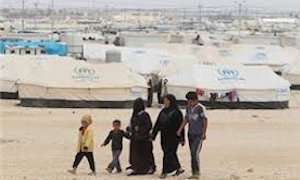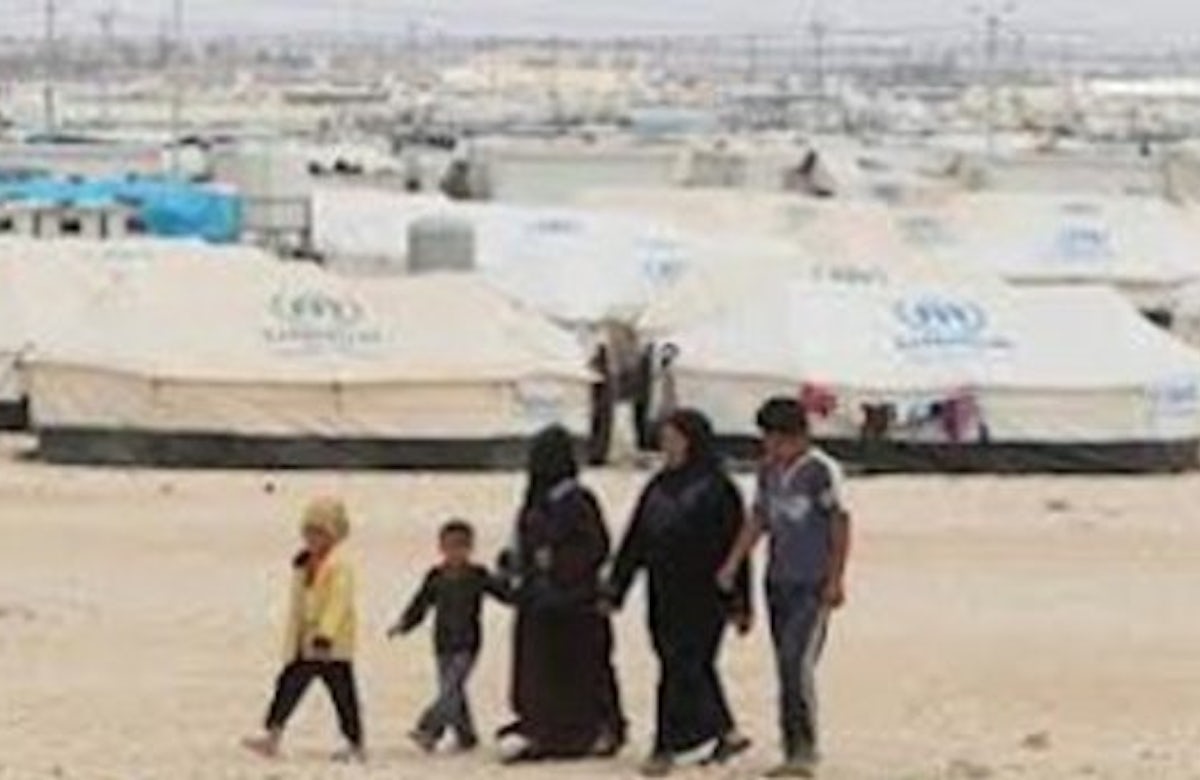By Pinhas Inbari
Zakariya al-Aga, the official in Fatah responsible for the Palestinian refugees, arrived in Damascus to conduct a series of meetings with officials of President Bashar al-Assad's government on the plight of the Palestinian refugees caught in the crossfire between the regime and Salafist forces in various refugee camps and the Yarmuk refugee camp specifically, where al-Qaeda’s Nusra forces had taken over and turned the camp into an operations launching pad in the heart of Damascus.
The question that worries the PLO most about the Palestinian refugees in Syria is the preservation of their right of return. The camps are slated to preserve the refugee status of Palestinians in Syria and concentrate them in one place until the day of return arrives. The events in Syria are achieving the exact opposite result. The civil war in Syria has led to the Palestinians’ dispersal around the country.
 Worse still, the refugees have joined the convoys of Syrian refugees and have become a part of the larger Syrian refugee context that may suggest a solution for their plight outside the framework of the Palestinian problem. The Palestinian Authority even refused to absorb Palestinian refugees from Syria in its territory for fear this would erase the refugees’ alleged right to return to homes in Israel proper.
Worse still, the refugees have joined the convoys of Syrian refugees and have become a part of the larger Syrian refugee context that may suggest a solution for their plight outside the framework of the Palestinian problem. The Palestinian Authority even refused to absorb Palestinian refugees from Syria in its territory for fear this would erase the refugees’ alleged right to return to homes in Israel proper.
The PLO’s dilemma has deepened due to statements by Palestinians in Syria saying that they were not interested in returning to Israel and considered themselves Syrian. A Palestinian blogger from a Homs refugee camp in Yarmuk, Iyyad Hayatleh, who served as an officer in the Palestinian Liberation Army, mocked the PLO delegation and its attempts to convince the shattered refugees to return to the camp in order to keep the right of return alive. "I am not a guest in Syria," he wrote. "I am a Syrian Palestinian that was born here, ate its food, breathed in its air, drank its water – Syria is my country!"
To the chagrin of Arab powers like Qatar and Saudi Arabia, the PLO has decided to engage with the Assad regime during a critical phase of the war in which the opposition forces are poised to shatter the regime in Damascus in order to secure the right of return. Furthermore, the PLO’s alliance with Assad put it in conflict with the Nusra forces and al-Qaeda by extension.
Historically, inter-Arab tensions have led to attacks on Israel, as a way of distracting the Arab street. The terrorist attacks that rained on Israel after the signing of the Oslo agreement were partly couched in this context, as were Hamas’ missile barrages on southern Israel at a time when Fatah’s achievements threatened its power in Gaza.
Accordingly, the PLO’s involvement in Assad’s regime’s showdown with the Nusra group in Yarmuk may attract al-Qaeda’s attention to the Israeli-Palestinian front, as the group’s self-dictated mandate extends to Great Syria – Lebanon, Syria, Jordan, and Palestine. Thus far al-Qaeda has shown little interest in Israel and the Palestinian problem. However, the PLO’s latest move may change all that.
Finally, the Palestinian alliance with Assad may also affect inter-Palestinian politics, which may, in turn, reverberate in Israel. It was reported last week that a Palestinian terrorist attack was aborted in Jerusalem. Israel’s Channel One attributed the attempt to a pro-Syrian faction called The Popular Front. It is early to tell whether it is linked to the Assad-PLO honeymoon. However, traditional pro-Syrian Palestinian factions may be concerned by the latest developments. So far, only the rejectionist front opposed to the Assad regime has been permitted to control the Yarmuk camp or any other refugee camp in Syria.
The front believes Fatah has suggested to Assad it replace them as Yarmuk’s defenders. The rejectionists, who operate as an armed militia, may resort to violence in Israel as a way to distract Fatah away from Syria and bring the conflict back to their home turf.






